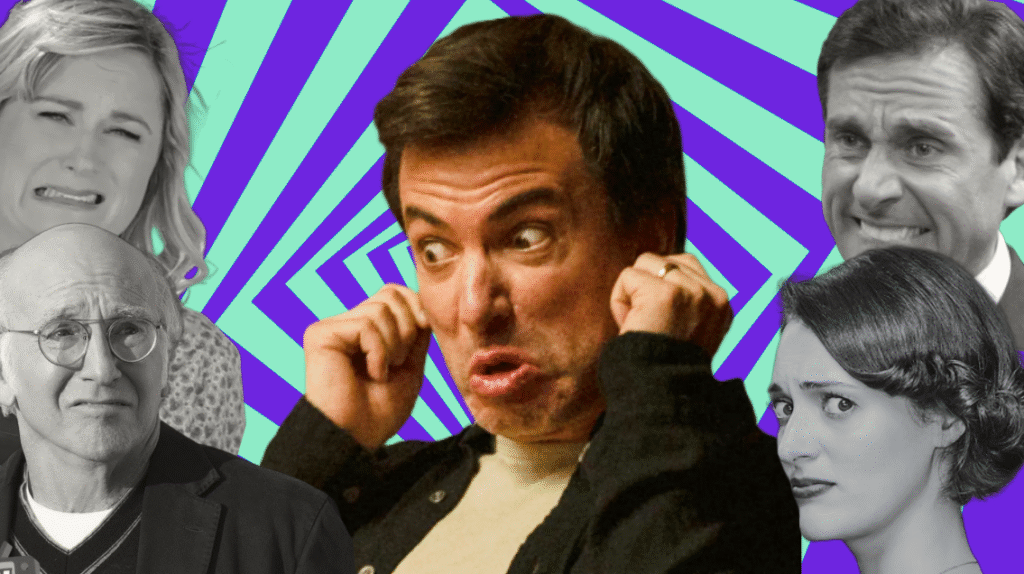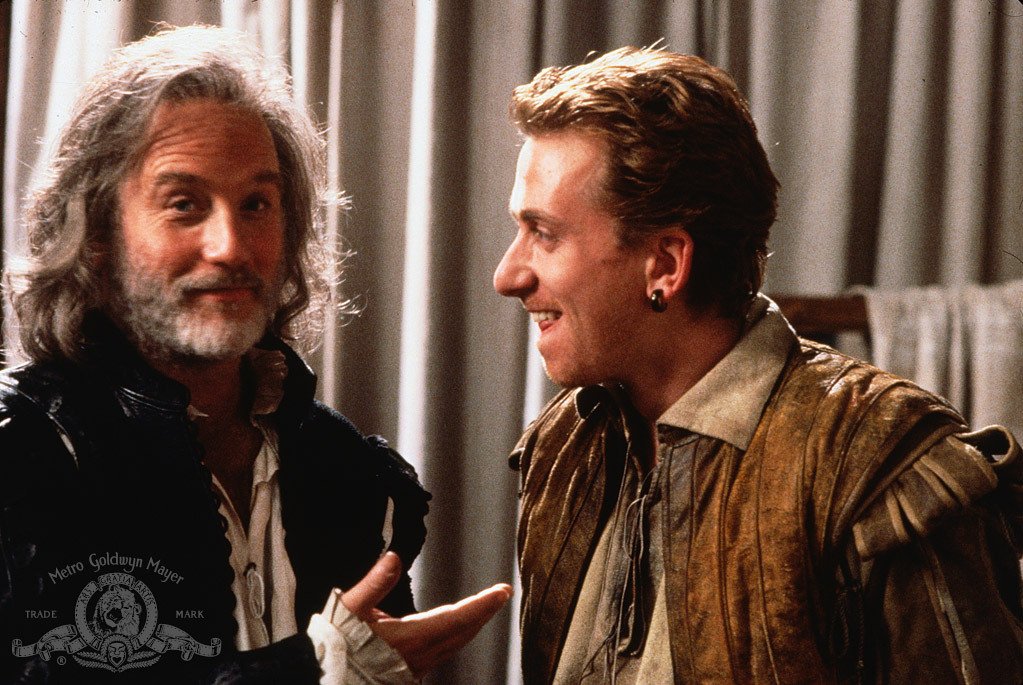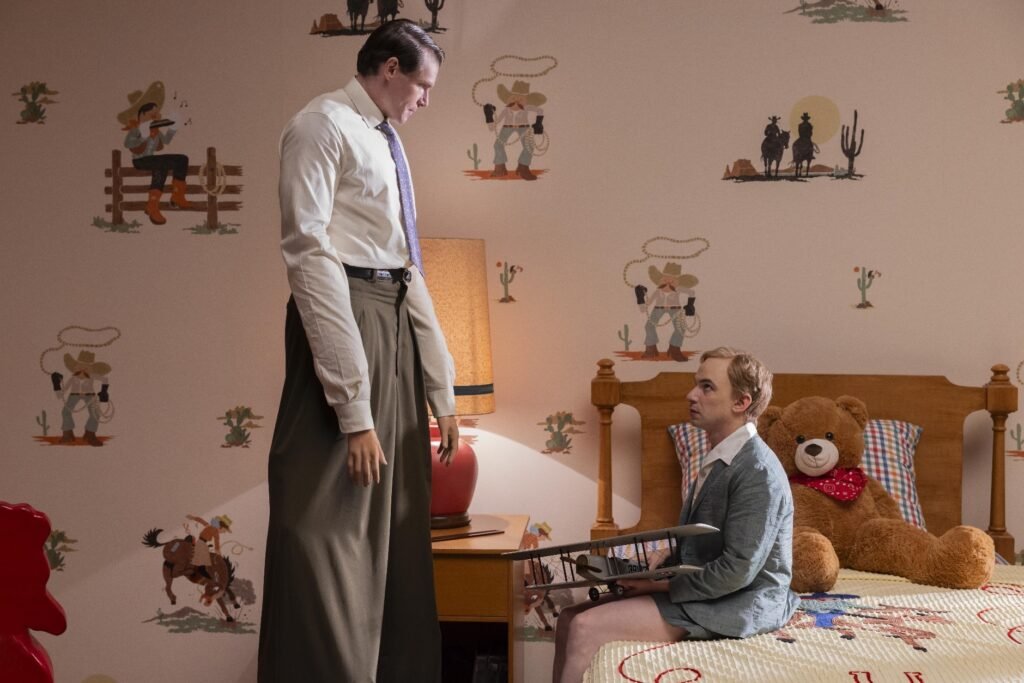Breaking the Fourth Wall with Cringe
When funny gets painful.

Table of Contents
There’s something powerful about cringe comedy right now.
All of a sudden, slowing down and studying the bizarre anatomy of everyday theater feels like a cold-plunge meditation on speed-living. The situational awkwardness of Curb Your Enthusiasm. The quotable catharsis of The Office. The fourth-wall-breaking realism of Fleabag. And more recently, the “what-the-fuck-did-I-just-watch” absurdism of The Rehearsal.
Everyone’s neurotically re-writing their own script. But when it comes to post-pandemic meta-theater, season 2 of HBO’s The Rehearsal offers a smorgasbord of cringe-wisdom that’ll make you rethink everything you know about “being yourself”.
It’s a brilliant retelling of “all the world’s a stage” while nodding to ghosts of comedians past. Creator and producer Nathan Fielder is obviously fascinated with role-play. He’s been trying to tell us for nearly two decades. But in orchestrating his latest wildly-expensive thought experiment, he poses a serious question:
How do you know when to stop playing along?
Performing sincerity
(The Rehearsal, S2, HBO)
Some call it “genius”, some call it “cruel and arrogant”. But for filmmaker Errol Morris (who invented the Interrotron, a device that enables eye-contact between the actor and audience), The Rehearsal is simply “weird science”. “There’s no such thing as a candid moment in this series,” he writes in Air Mail. “You can’t trust that anything is what it seems.”
Fielder’s work is certainly unique in that it places him at the center of his own experiment, all while evoking the spirit of behavioral science. Comedian H. Jon Benjamin likens it to the mind of Stanley Milgram, the psychologist known for his controversial experiments on obedience. “It always seemed like he was from another planet learning how to do human customs,” Benjamin told Vulture, “or AI collecting information on human behavior.”
But Fielder’s play-within-the-play illuminates a mirror we all take for granted. In doing so, it echoes the work of Canadian sociologist Erving Goffman (The Presentation of Self, Asylums), who immersed himself in social situations to study his subjects, then defamiliarized their interactions to unveil theatrical patterns hidden in plain sight.
For eons, entertainers have been doing something similar.

(Rosencrantz and Guildenstern Are Dead, 1990)
“We’re actors — we’re the opposite of people!”
Fielder’s own mother, a social worker, sees his work as “ethnomethodology” — and it’s not a stretch. Most observational comedy mimics the structure of a behavioral experiment, requiring the researcher to blend in to answer the pestering riddle: Is sincerity itself is a performance?
Some have even drawn parallels between “The Fielder Method” and the work of writer-filmmaker Charlie Kaufman (Synecdoche, New York, Adaptation, Eternal Sunshine of the Spotless Mind), who explores the anxiety of being trapped within your “self” as “Other”.
But something about conveying these existential ideas in the language of improvised comedy — leaving just enough room so anything can happen — makes this red-pill entertainment both absurd and hysterical, an unusual flavor that makes “truth” more digestible for the audience, and affirming for the clown.
Breaking the fourth wall

(The Rehearsal, S2)
“I’ve always felt that sincerity is overrated. It just ends up punishing those who can’t perform it as well as others.”
It’s no surprise bewildered fans often wonder about “the real Nathan Fielder”. It’s the thing entertainers grapple with all the time. Where does Larry David the writer end and Larry David the character begin? What’s Dave Chappelle like behind closed doors? Is Conan as nice off-camera? And who on god’s green earth is the “real” Jordan Schlansky?
The mystery, of course, is that there is no mystery. Great entertainment blurs that line to keep the gag going. It’s similar to the mystique generated by the inscrutable Andy Kaufman — the enigmatic performance artist and inspiration for the R.E.M. song “Man on the Moon” — who kept audiences on edge with unpredictable bits delivered with total commitment.
“I don’t know if you’re laughing at me or with me.”
(Saturday Night Live, 2014)
It’s unsettling. Uncomfortable. You feel it in the pit of your stomach. And sometimes that’s the whole point. Sometimes great performances expose our addiction to cue-cards. Our need to be told what to think and how to feel. So much of our daily decision-making is a reflection of this self-imposed puppetry. We blame the world for a façade that wouldn’t exist without our applause.
According to actor Judd Hirsch who worked with the comedian on Taxi, Andy Kaufman was simply “a guy who, if he could fool you long enough to believe something, which is really what actors do, then he wins.”
But even professional acting has rules. So when someone breaks the fourth wall and turns the spotlight on us, our world goes upside down. We have a physical reaction. What do we do, how do we react? It mirrors a situation we desperately wish to escape — that we’re somehow complicit in the staging of “madness”. Kaufman frequently exposed this through his off-beat characters, including the one he played on Taxi, which prompted acting powerhouse Orson Welles (Citizen Kane) to admit:
“It’s fascinating. I don’t know whether it’s the innocence of the fellow… or the feeling you have that he’s not stupider than everybody, but maybe smarter, that adds to the fascination.”
Orson Welles, The Merv Griffin Show (1982)
Life is cringe

L: King of Comedy (1982)
R: Joker (2018)
“Better to be king for a night than schmuck for a lifetime.”
We all know life is stranger than fiction. We don’t applaud each other for performing “sincerely”, and rarely do we end up on talk-shows winning over an audience. The greatest applause a good actor can get off-stage is for someone to simply believe them. Whether they’re sincere or cynical, we may never know. But through this great surrender, life goes on.
That’s why “cringe” is such an important part of discernment. It’s the awareness of being trapped in a moment you can’t escape.
There’s a reason, after all, “cringe” comedy often feels cathartic. Like being on a roller-coaster. It’s a manifestation of our neurosis — a controlled situation by which to experience a total lack of control. That’s what observational comedy unpacks through re-constructions of painfully awkward moments. They help us face the unface-able. And they do it by transporting us to that place of in-betweenness where the rules of “normal” behavior no longer apply.
Nathan For You, S4, E5
Despite our delusional allegiance to “the whole truth”, we are constantly revealing our (much more desperate) need for consensus in order to maintain self-soothing narratives. We validate “sincerity” through theatrical conventions whose theatricality we fundamentally deny. It’s all kind of absurd and hysterical, and trying to control it, even more so. Here’s how Fielder reacted to some people’s inability to face this underlying tension:
“When I hear the word “cringey” and someone’s like, “I can’t handle it”, I wonder how that person can go through life at all. Because every interaction is horrendous. Almost all, in some way. Like, nothing ends with a cut when you’re in real life. Like, sometimes… there’s nothing else to say and everyone has subtext of things they’re not saying to each other and that feels, like, “normal”. So, it’s interesting that people have a hard time with it.”
What’s more hysterical is how we validate each other’s performances based on vague, hard-to-pin-down metrics of sincerity that have nothing whatsoever to do with “the truth”. In other words, how do you know who’s sincere and who isn’t in a world where the prerequisite for all communication is quite simply… to believe?
